It all started with a question: What makes you feel alive?
Involving people and communities in health research has been recognised by Higher Education Institutions, Research Organisations and the Government (NHS) as having a valuable impact on research outcomes, clinical trials and precision treatments.
Kelly Gleason, the CRUK Centre Nurse, has worked closely with Imperial researchers to bridge the gap between patient and researcher in cancer research at Imperial for over a decade. Kelly won the President’s Award for Excellence in Societal Engagement for Achievement in 2023.
If you would like further information on how to get involved with public involvement as a researcher, patient or member of the public, please contact Kelly.
There are many terms associated with the inclusion of the public in health research, and it is important to understand the difference between them. Predominantly, you will see the terms Involvement, Engagement and Participation. The Institute for Health and Care Research defines these terms as follows:
Definitions
Public Involvement
Public involvement is where people share their views and experiences to guide and inform how research is designed, carried out, shared and adopted. In other words, research is done 'with' or 'by' members of the public, rather than 'to' them. Public involvement refers to an active partnership between the public and researchers that influences and shapes research.
This may include taking part in surveys, focus groups, discussion forums or advisory groups.
Public Engagement
Although the definition of public engagement varies across sectors, we use the National Institute for Health Research definition which refers to public engagement as an activity where information and knowledge about research is provided to or shared with the public.
Examples of engagement include Science festivals, seminars or the ‘after hour’ events often known as ‘Lates’.
Co-production
The National Institute for Health Research refers to co-production of research as an approach where researchers, practitioners and the public work together, sharing power and responsibility from the start to the end of the project, including the generation of knowledge.
Public Participation
Public participation is where patients or members of the public are participants in or the subjects of research that is done 'to', 'about' or 'for' them.
Examples of participation are people being recruited to a clinical trial, completing a questionnaire or participating in a focus group as part of a research study.
Co-production
Research benefits from including people from outside the research community in a process of shared learning or co-production. Co-production enables expertise and experience from researchers, patients, and the public, to influence the process and outcomes of research.
PPI advice
Are you a researcher at Imperial, a patient or member of the public? Are you thinking about getting involved in PPI? See what advice our patients and researchers have to offer in the following videos
Training opportunities
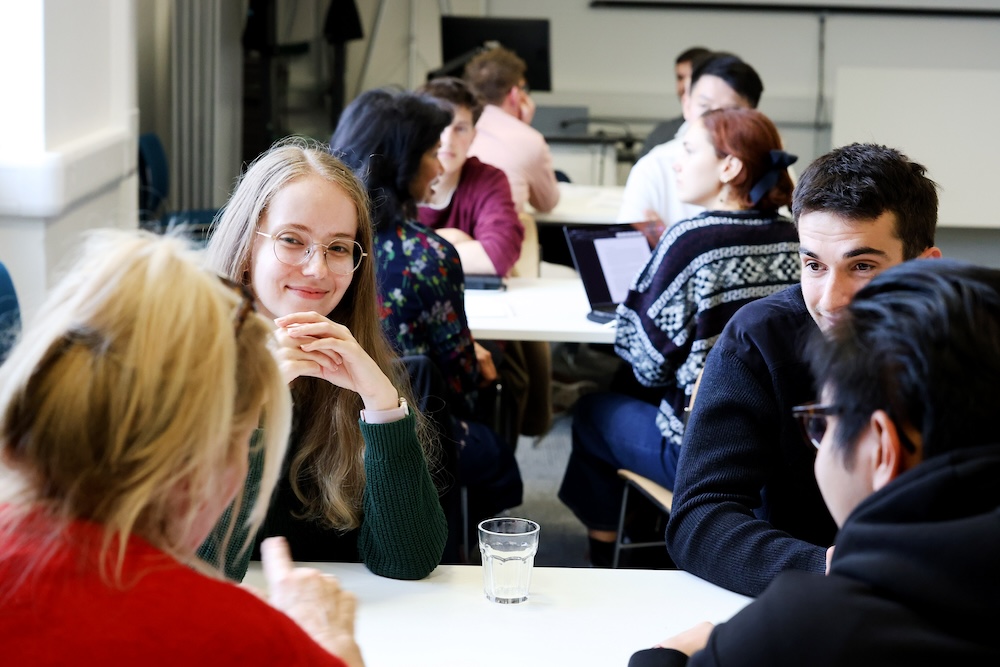
- PERC online training
- Navigating Digital Health (co-created with the public)
- Student workshops (bespoke for student groups)
To discuss your training needs, please contact Kelly Gleason.
Patient access
Funding bodies expect public involvement in your research activities. By involving patients in your research, you can ensure that your research plans remain relevant to patient interest, that they are feasible and acceptable to potential research participants and that you communicate and disseminate your research in an accessible way to the general public.
The Imperial Involvement Group for Cancer can help in the following ways:
• help to co-produce a lay summary
• help to co-produce a Patient Information Sheet
• provide input into grant applications
• help you disseminate your research findings to the public is an accessible format
Find a list of organisations and contacts who can help you find the right people and communities to support your research.
Or if you would like to discuss your needs in further detail, please contact Kelly Gleason.
Examples of projects that have enhanced the research culture at Imperial by involving people and communities in our research and engagement activities
- Imperial Science Cafés
- The People Who Are Keeping Me Alive
- Science with Care Butterfly Installation
- Smart Cells
- Lymphoedema Project
- People Like You (PLY) project
 The Imperial Science Cafés are a unique opportunity for cancer researchers to present and discuss their research projects with individuals affected by cancer in a relaxed, open and informal setting. These events are not only important for educating and engaging with the public and patients, but it can also provide researchers with valuable patient perspectives on their work through sharing their personal experiences. Usually, the Science Cafés are hosted at the Maggie’s Centre at Charing Cross Hospital.
The Imperial Science Cafés are a unique opportunity for cancer researchers to present and discuss their research projects with individuals affected by cancer in a relaxed, open and informal setting. These events are not only important for educating and engaging with the public and patients, but it can also provide researchers with valuable patient perspectives on their work through sharing their personal experiences. Usually, the Science Cafés are hosted at the Maggie’s Centre at Charing Cross Hospital.
If you are an Imperial Scientist and would like to present your research at a future Imperial Science cafe, please contact Kelly Gleason.
We are now taking our Imperial Science Café on the road in the community. If you would like to host a science café on cancer research in the community in North West London, please contact Kelly Gleason.
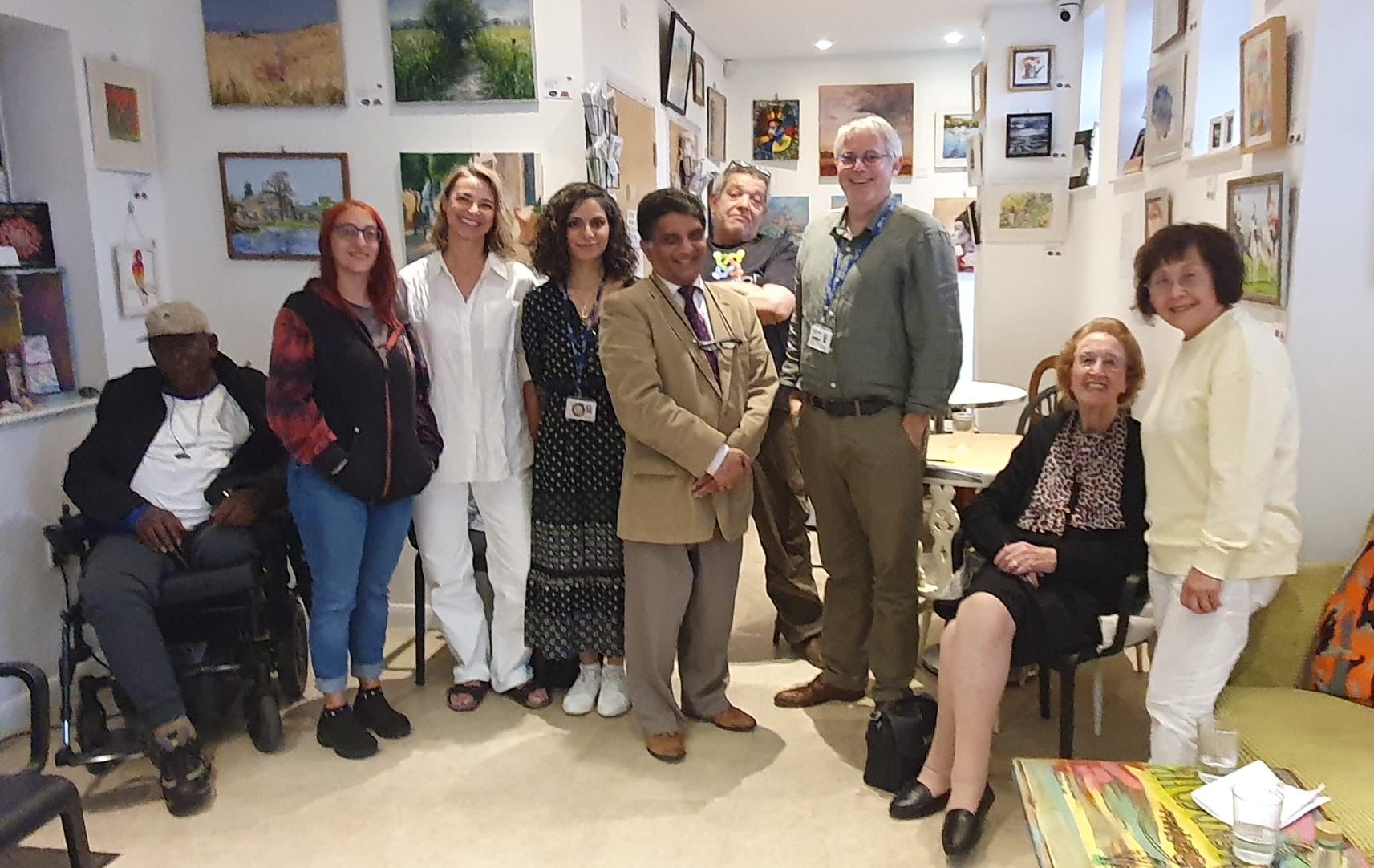
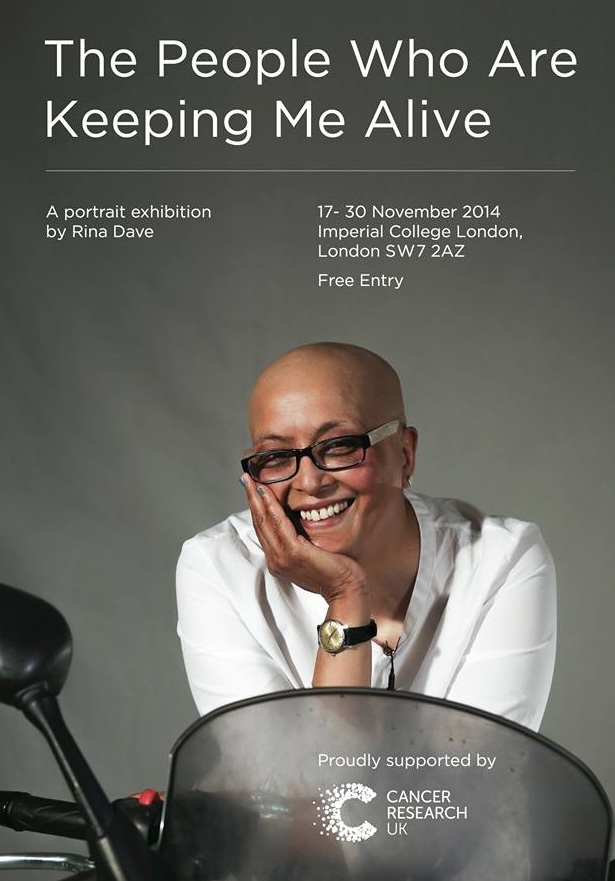 Rina, a secondary breast cancer patient at Charing Cross Hospital, photographed the people involved in her care to showcase their individuality but also to show how many people support each cancer patient though their journey.
Rina, a secondary breast cancer patient at Charing Cross Hospital, photographed the people involved in her care to showcase their individuality but also to show how many people support each cancer patient though their journey.
 The Imperial Butterfly Artwork Installation: Bringing Research to the Clinic is an art installation of 250 ceramic pieces in the waiting area of Clinic 8, an out-patient cancer clinic at Charing Cross Hospital, to showcase how patients and clinicians are working with researchers to improve cancer care.
The Imperial Butterfly Artwork Installation: Bringing Research to the Clinic is an art installation of 250 ceramic pieces in the waiting area of Clinic 8, an out-patient cancer clinic at Charing Cross Hospital, to showcase how patients and clinicians are working with researchers to improve cancer care.
Read the Lancet article.
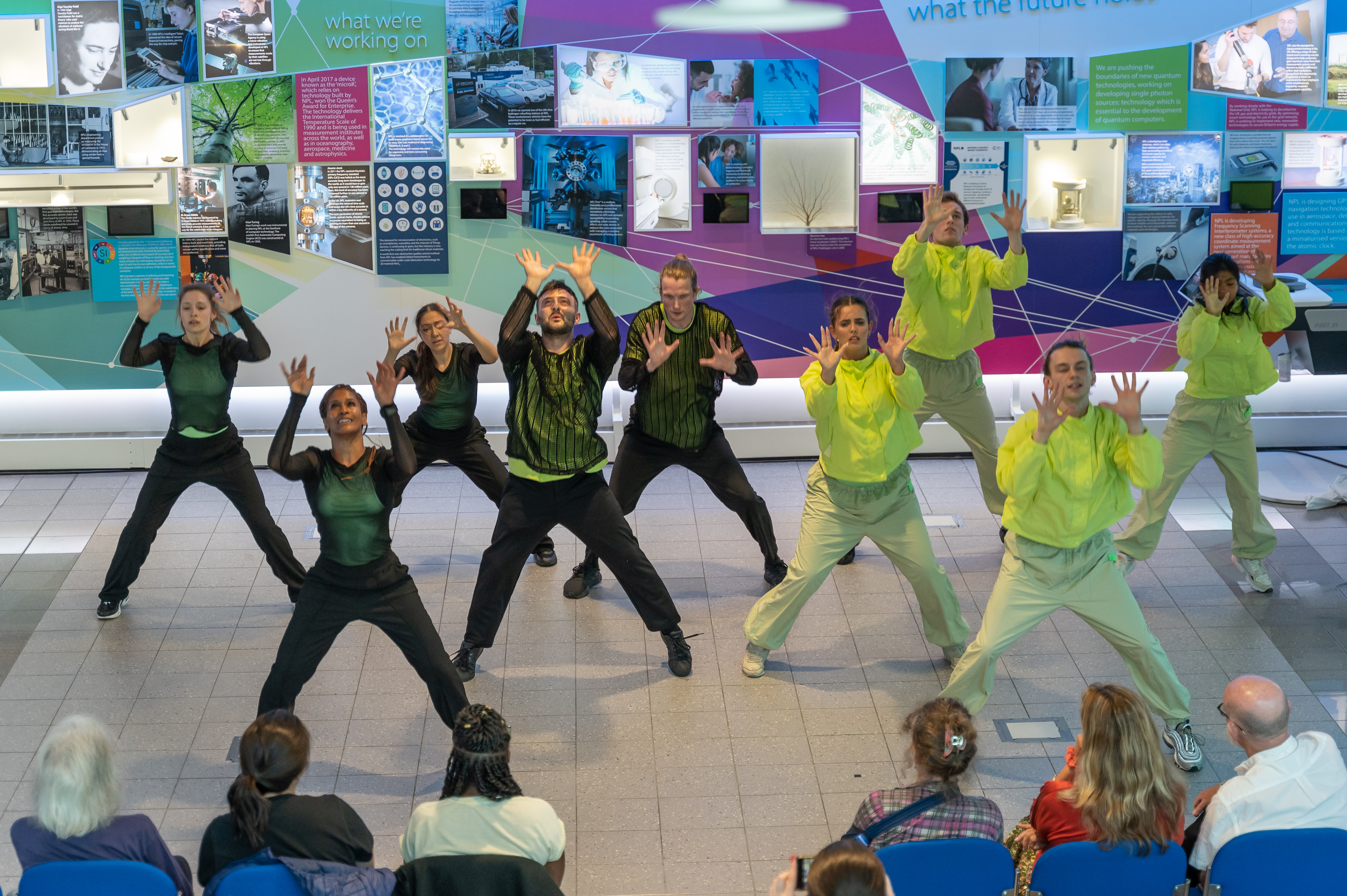 A dance and science project inspired by the awe and wonder of the human immune system.
A dance and science project inspired by the awe and wonder of the human immune system.
All breast cancer patients who undergo lymph node removal suffer surgical damage to their lymphatic vessels. In 15-30% of cases, this results in breast cancer-related lymphoedema (BCRL) – incurable swelling of the arm – and a life-changing decrease in quality of life and mental health. Our group is developing FaciliFlow, an implantable medical device intended to prevent BCRL by regenerating damaged lymphatic vessels. FaciliFlow is made from materials known to be safe from decades of use in other implants. It is deployed in minutes during cancer surgery and requires minimal training. Since it is a permanent implant, we must undergo a rigorous approval process. We are currently seeking funding to take the device through pre-clinical testing, with the hope of having it on the market by the end of this decade.
The Lymphoedema Awareness video was made with the help of women we collaborated with who had lived experience of lymphoedema. They helped us convey the magnitude of the problem, the impact on women’s lives and the need for more research into lymphoedema to potential funders.
The Coproduction video showcases our journey over the last five years working together to help find a way to prevent other women from developing lymphoedema as a side effect of breast cancer treatment.
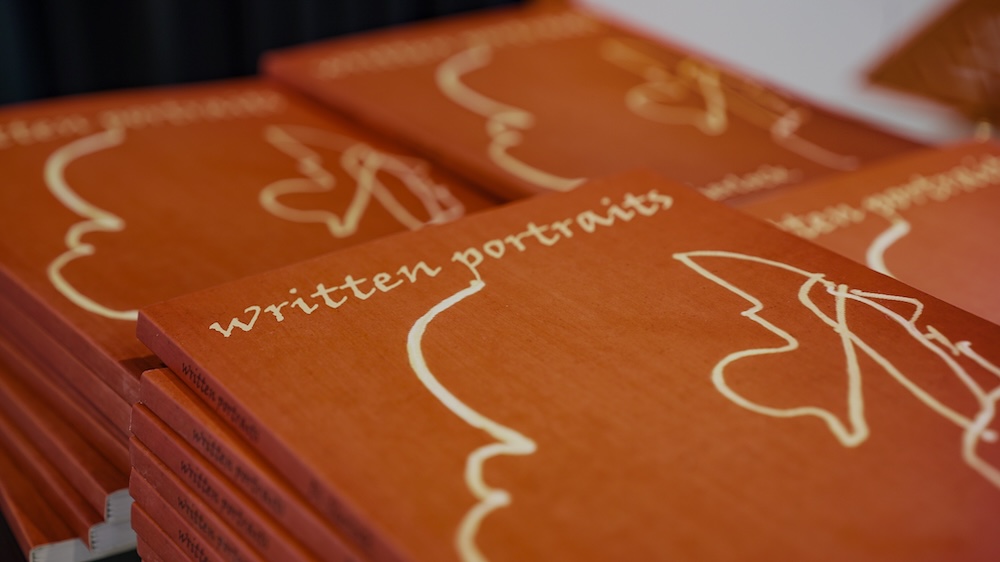 This project was led by the Professor Helen Ward and Professor Sophie Day.
This project was led by the Professor Helen Ward and Professor Sophie Day.
Personalisation is changing many parts of contemporary life, from the way we shop and communicate to the kinds of public services we access. We are told that purchases, experiences, treatments, and interactions can all be customised to an optimum.
As a group of scientists, sociologists, anthropologists and artists, we are exploring how personalisation actually works. What are optimum outcomes? Do personalising practices have unintended consequences?
We argue that personalisation is not restricted to a single area of life and that personalised practices develop, interact and move between different sites and times. The project is split into four areas: personalised medicine and care; data science; digital cultures; and interactive arts practices.
People Like You: Contemporary Figures of Personalisation is funded by a Collaborative Award in the Medical Humanities and Social Sciences from The Wellcome Trust, 2018–2022.


